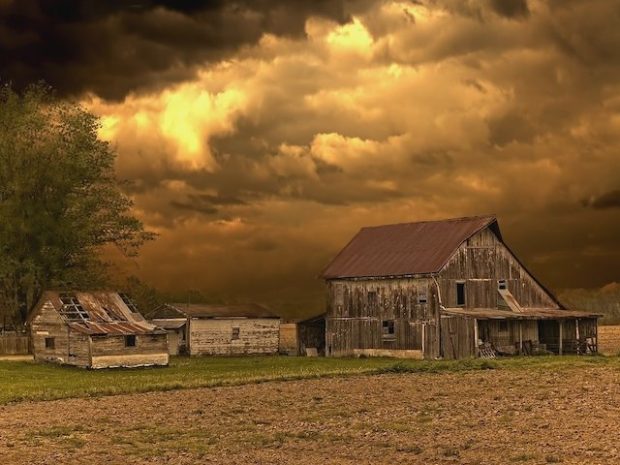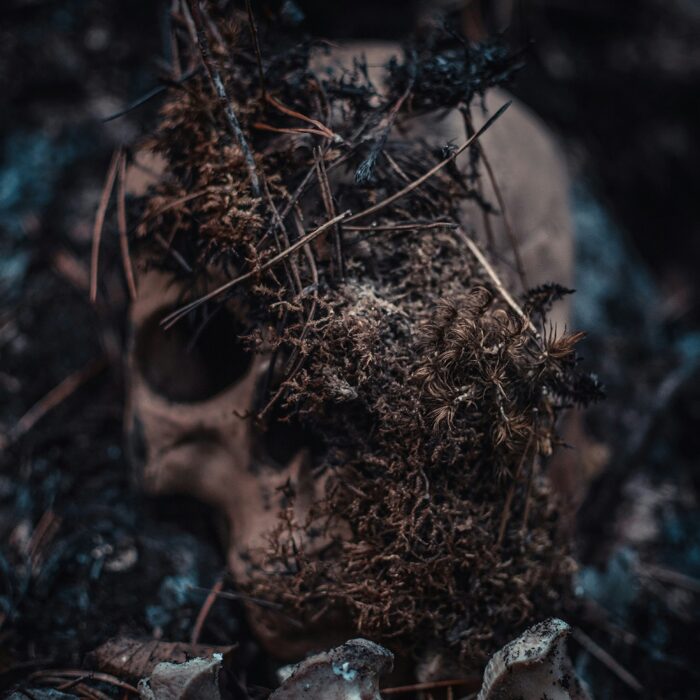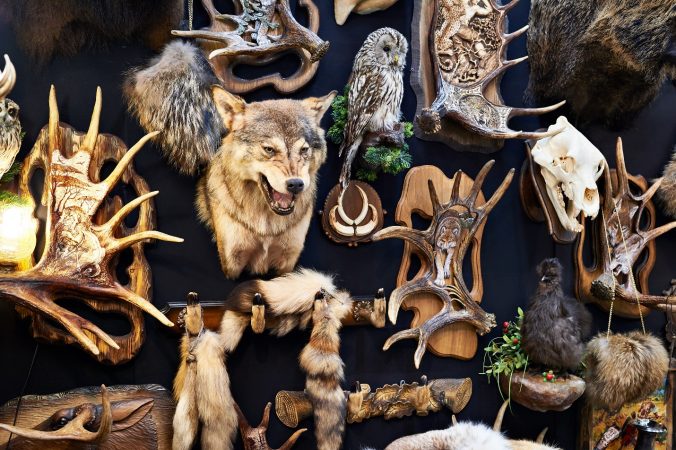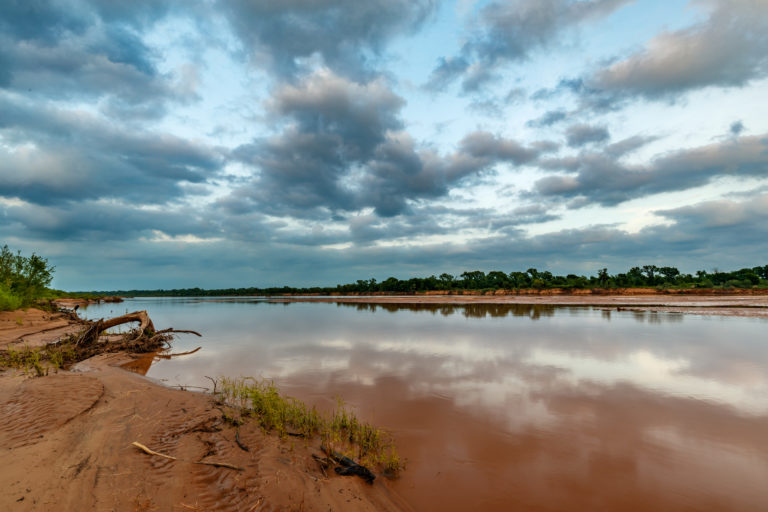You have no items in your cart. Want to get some nice things?
Go shopping
He came to the abandoned farmhouse to burn it down. He would wait until dark, and then burn it down. He had lived there with his mother and father until he was eight years old. Then his mother and father were gone. The house had been empty since, the windows and doors black holes, the sagging roof barren of shakes, the foundation cracked. The isolated yard, surrounded by rolling hills of short-grass cattle pastures and wheat fields, was only approachable now down a grown-over trail.
He passed worn-out-looking farm and ranch towns, their scraggly trees bare in the fall. The buckskin-coloured hills went on to the horizon, black cattle spotted over them. Undulating harvested grain fields came to the edges of the fenced cattle pastures. He slowed as he neared a gravel road going off into the grassland hills. Somehow, he remembered the turn. He was seventeen, and he was going to visit his mother’s grave. And burn down the house they used to live in with his father.
The dirt road passed a lone ranch yard, cattle corrals and hay piles. He picked up speed, raising a cloud of dust. Once into the grassland hills he slowed. At the heights he pulled over and stopped. His aunt had brought him here once, when he was ten years old. They stopped on this hilltop, on their way to the cemetery. They got out of her car. “These are the Great Sandhills,” she said, looking west. “They’re full of wildlife. Your grandfather used to hunt here.” They looked out over the rough, ragged expanse of sage-spattered grassy dunes and chokecherry ridges running to the horizon. Aspen bluffs in bright fall colours and green juniper grew in the cups of the dunes. The sky was dark and heavy with high clouds. The cold wind watered the boy’s eyes. He smelled the sage and grass. Small birds flitted in the gnarled blue-green sage and leafless brush. They drove on, to the cemetery.
Now, he drove until the road began to peter out. At a turn he kept going, slowly, onto a bumpy over-grown trail. He came to a large square of bare caraganas that he thought he remembered. They were growing through a sagging barbwire fence, set well out in a hilly pasture. The trail passed through a leaning black-iron gate. The young man drove into the grass field, scattered with tilted headstones, and stopped. The cemetery looked abandoned.
The visit here with his aunt seemed so long ago. “Do you remember your mom?” she had asked him, standing close to him.
He nodded.
“Do you miss her?”
He only nodded again.
“Me too.” She wiped tears from her cheeks.
They knelt together and placed flowers. The wind blew the petals. His aunt held him, and they both cried in the cold wind. They did not drive by the farmhouse, where he used to live with his mother and father.
The teen got out of his old car, with flowers, and walked though the pale uncut grass. Her ashes were buried near the back row. Her flat stone was almost covered by bent grass, and its surface was lightly patterned with lichen. He read his mother’s name. She had liked flowers, he knew. He knelt and placed the bouquet on her marker. He stood for a time, in the wind that always blew here—then turned and left.
Miles along the road from the cemetery he drove slowly down a long, rough trail, toward a lone, two-story house on the horizon. A row of bare caraganas lined the edge of the yard. Rusting, abandoned farm equipment sat scattered in the grass, and leaning, grey corral posts stuck up near where the barn had been. The barn was collapsed now, a pile of dark wood. He pulled over and stopped. The pale grass wavered in the wind around the old house that was brown and badly weathered. He was trespassing. His aunt, who had inherited the land, sold it after his mom’s death. No one lived within many miles.
He always remembered springtime on the prairie: cranes and geese returning very high in the blue sky after the long winter, a meadowlark on a grey fencepost, grass in the cattle pastures turning green, crocuses blooming, a 1954 International Harvester pickup his father drove. His father’s dirty grey Fedora with the brim turned up at the back and worn leather bomber jacket. His sharp nose and chin under the shadow of the hat in the spring sun. His mother smelling faintly of a perfume that he never smelled again. She was so slim and beautiful, with her long, thick black hair. Her deep-blue eyes, soft features, and small white hands. She never put him to bed without singing to him, touching his skin with her gentle hands, until he was asleep.
He remembered the hard-packed dirt surrounding the house. The heavy wooden door scarred by weather. The landing broken, the steps worn to smooth troughs. The kitchen linoleum through to the wood. A white, often-stained porcelain sink on a pedestal in a small kitchen-pantry. No running water in the old house. Speckles of dust floating in sunlight in the bright kitchen. A tall brass-stemmed ashtray in the living room. A flower-patterned couch. The wine-red armchair near a window. The smell of dust and polish. The dark wood banisters leading upstairs to his bedroom. Wooden windowsills cracked and dusty. Dusty doily curtains that felt like his mother’s nylons.
He looked out his bedroom window that early morning, a thin line of bright sunrise cutting the prairie horizon. There were storm clouds in the distance, coming silently, slowly closer. He snuck downstairs. The house empty and cold, cold spring air; the door to the yard swung open. The smell of stale cigarette smoke and spilled beer. Empty bottles. Butts with red lipstick on them in ashtrays. Then he heard voices outside. Yelling. His father yelling, screaming loudly in the dull dawn light. Then the sharp, loud, BANG.
The young man walked slowly now through the dry yard grass. Beyond the house was the ragged row of bare caraganas, the wind-tilted corral posts, and scattered pieces of rusting equipment. Ripe crested wheatgrass wavered in the wind. He remembered lying in bed at night, freight trains passing on the prairie, rumbling, clacking, echoing in the distance. The train tracks were abandoned too long ago.
He kicked at the dusty grass. This patch of ground, once his mother’s garden and flowerbeds, had long ago grown over. He remembered black crickets crawling from cracks in the earth, baked dry and hard by summer heat, golden wheat fields moving in waves in the hot wind, a rustling sound. The crickets clattering. His mother, in her breeze-billowed floral skirt, and her worn shoes, a tied kerchief over her hair, hand-hauling cistern water in an old grease pail. She somehow made their garden green, the barren yard almost pretty. His father whistling, “Till We Meet Again,” his sun-browned face as dark as polished wood, his chiseled nose and chin.
Crows in flocks in the fall. Hovering over and feeding in the harvested grain fields. A large flock silently appeared, swooping over and above him on the pasture hill where he went as a boy, away from the house. The black birds rose higher, intermittently flapping, an almost indiscernible whish of wings, then gliding, with scattered cackling and caws. Another large flock, slowly rising too, as if on the wind. Then another, the birds floating black in the breeze like pieces of burnt paper. Flock after flock swooping above and beyond the hill, and higher into the achingly blue, numinous sky, flying slowly, relentlessly southward. He watched them, the smell of ripe grass, the fall sun warm, the warmth soaking into him, warming the earth, warming him. Eventually, reluctantly, he walked home to the old house, and his mother, and father.
The young man removed a can of gas and a propane torch from the trunk of his beat-up car.
He remembered some kind of party or anniversary that night. His mother and auntie on the couch, tight skirts, legs crossed, nylons, high-heeled shoes, red lipstick, their thick, wavy dark hair, smoking cigarettes, smoke curling through lamplight. His father’s cruel smile. “To bed, to bed,” his aunt told him. His aunt tucking him in that night, not his mother. Noises downstairs as he tried to sleep. Loud voices and laughter. Bottles tinkling, until he fell asleep.
From the worn-out step of the dilapidated house, standing shirtless, wearing his manure-stained boots his father often shot at foxes and coyotes, and an empty green antifreeze can. He was shirtless that morning too, wearing those worn-out boots. His father shot his mother in her head, near the unpainted barn. Out on that small farm, where they lived, isolated from everything.
The tilted grass there was copper-coloured from frost. The approaching storm clouds made it seem dusk. Then the sharp, loud, BANG. Then his father was in the house, in front of him in the kitchen, his face disfigured and dark, wild-eyed. His father raising his arm with the big black gun in his hand, pointing it directly into his face. His father pulling the trigger: click. Flinching, he put his hand up in front of his closed eyes. Opening them, his father still there, pointing the gun at his face, pulling the trigger again: click. His father yelled, “Fuck it!” and put the gun to his own temple: click. His father’s arm falling. His father turning away from him, his thumping boots out the open door. The roar of his truck leaving the yard.
He remembered going out that open door. The morning turning darker, not lighter, the thunderstorm coming. He ran across the yard to the edge of the pasture. Crawled under the barbwire fence. Ran toward the barn. A flicker of lightening on the darkening horizon. The wind blowing now. He saw white, billowing in the grass. Her white dress. The distant thunder came closer and closer.
He would only say that he remembered his aunt finding him in his upstairs bedroom looking out the window. And he remembered the smell of the rain-soaked windowsill dust. In the yard there were black and white cars, and men wandering through puddles of rainwater. The birds sang and the air was still now. “She died instantly,” he heard them say, as if it were a consolation. Her blood in the grass like afterbirth from the cows calving in spring.
The farmhouse abandoned. Tattered curtains in an open window, luminous, billowing in the grass-smelling breeze.
When he was fifteen he was told his father was released from prison. Blind drunk had been his defense, according to a newspaper clipping his aunt kept hidden in a bedroom drawer. The original charge of second-degree murder was changed prior to his guilty plea of manslaughter.
A great horned owl swept silently over the caraganas. A Hungarian partridge’s creaky call came from the fields. The young man calmly stepped back, the house barely visible now, the sun having fully fallen. The can of gas sat on the ground. He held the propane torch. Nearly dark, only a strip of sunset.
He splashed gasoline on the beautiful golden walls of weather-worn shake siding. He walked the perimeter of the house, lighting the tall dry grass next to the cracked foundation. It did not take long. The flames swept up the walls, higher, increasing waves, creating a whirlwind that moved his hair. He felt the heat, the flames intensifying, brighter and faster and crackling. The smoke rose, grey and white, and then black.
He stood well back. The flames lit the old farmyard. A tall burling flame was all he saw now, orange, yellow, and white and high, and the black silhouette of the house—until it collapsed, throwing up swirling clouds of starry sparks. The grass was on fire, but it did not spread. The flames dwindled. Darkness returned, some stars out now. Only glowing embers and small flickering flames where their house used to be.
About Michael Hetherton
Michael Hetherton’s short story collection, Grasslands, was an Independent Publisher Book Awards finalist, Danuta Gleed Award nominee, and winner of a Saskatchewan Book Award. His most recent stories appeared in the UK in Confluence Magazine, and the Honest Ulsterman, Oct. 2019, and Adelaide Literary Magazine, NY, Dec. 2020. He lives in Canada.




